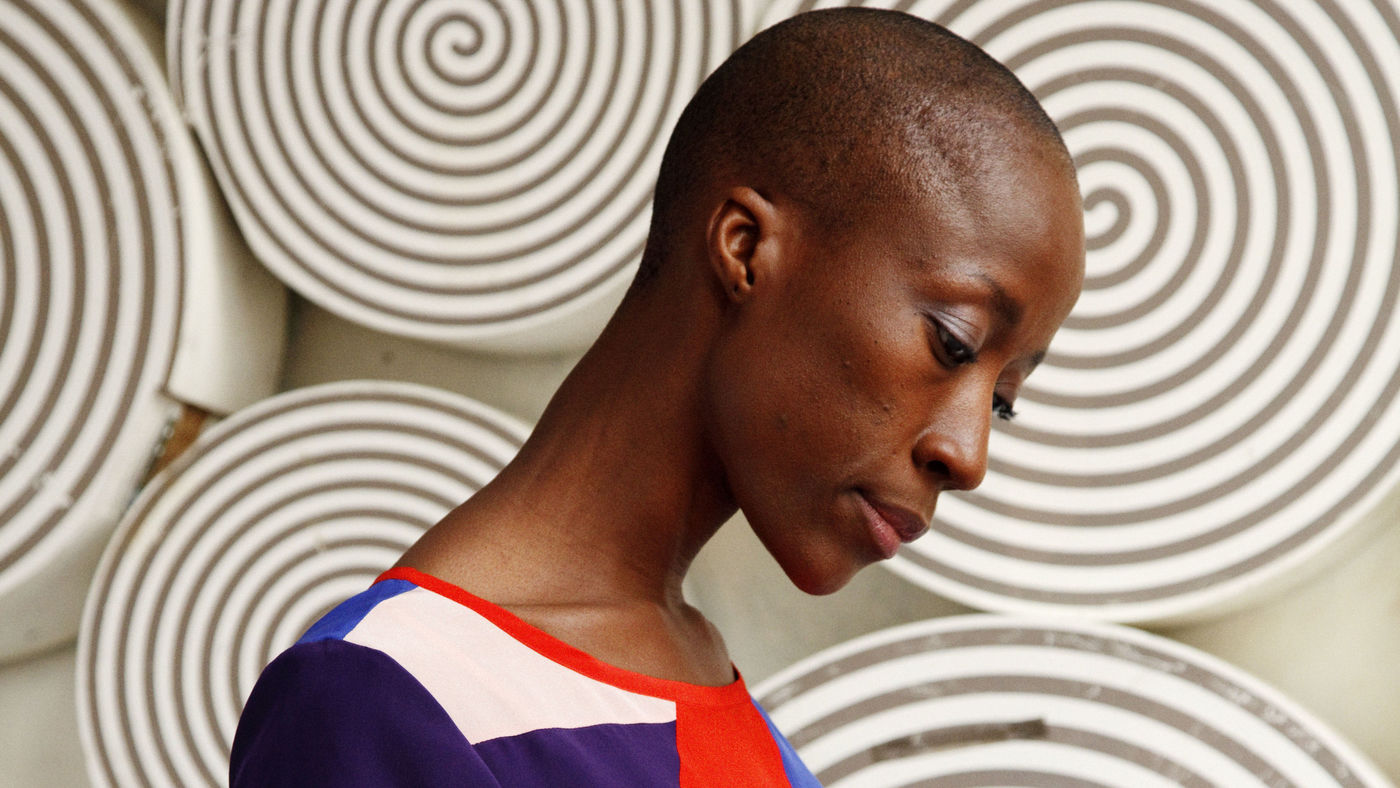
When God created music, he must have first stuck his finger down in Mali. In fact, to call contemporary Malian music world music is a bit odd, as the music that is born there today might have easily been heard by the locals thousands of years ago, in the same form and with the same contents. We are talking about the world’s most ancient musical culture that still exists in its original form, and as we could see at the concert, the great storytellers, the famed “griots” are still surrounded by the same respect as they were centuries ago. Rokia Traoré, however, is no griot, as you can only be a griot if you are the child of one: she was born into a secular family. As she told us between two songs, a great storyteller took her in and she learned a lot there. And this is what we, Europeans cannot comprehend at all, as we can’t comprehend the lyrics either. So how are we supposed to approach the star of Malian music, what is there in her we like so much, when we’re left with almost nothing to hold on to?
There are a few clues, though: Traoré was born to diplomat parents and grew up in an international environment, thus her thinking is not the ancient, tribal one; still, her mother tongue –which she sings in- is Bambara. Not Tamashek, which we heard the band Tinariwen sing their songs in; I’m saying this to introduce yet another variable that makes our position on the Tuareg-Mandinka axis a bit more difficult. At the same time, music from Mali has already reached and impacted us, affecting jazz performers too; here I’m talking about Dee Dee Bridgewater’s album titled “Red Earth” and her concert at the "MÜPA" Palace of Arts in Budapest (Mali is sometimes referred to as “Red Earth”, as the country looks red from space). Becoming a star in Mali equals becoming an institution directly, so it is no wonder that Traoré created a foundation, and according to her, the ten musicians on stage were recruited to the tour through this foundation. This must be about helping the ones in need, conserving traditions, and cultivating musical customs. In a country, where extremists created a separate state called Azawad, where they banned and sanctioned music, this is a bold move.
This move, apparently, has become a bigger project, where Traoré has acted as a real mentor in this extraordinary line-up. I think nobody expected the four vocalist women and one man to start with their own songs, but this surprise was not without an aim. We heard sounds: brilliant, experienced, awe-inspiring, lively, visceral sounds that bore unique characters which allow us to say even now (since the singers had their first chance to sing without Traoré in this line-up) that this company is destined for greater things. Rokia Traoré enters the stage only after the first third of the show. We all know her lean, reed-like figure from the Sziget festival and the album covers; she really is without any extra hype. But this simplified, solid character commands an aura of respect that almost elevates her to a diva-like stance in the great hall of the Müpa. I sat far off in the gallery, I couldn’t completely recognize the line-up either, but the indispensable “ngoni” and kora cannot be confused with anything else. Especially not, since the coupling these two instruments is the trademark of Traoré; no-one has ever used these two instruments together in chamber music. To my surprise, the voice of Traoré, which I have encountered in its album form prior to that night, is somewhat less appealing than that of the heavenly voice of the choir members. Hers is rugged, stutters in performance, the songs sound less compelling in her rendering as compared to other soloists from the choir.
And, lo, a turn of events! This rugged voice begins to delve deeper, the singer, like other fado singers, seems to expect fate to arrive, she rocks lightly from side to side, aura vibrating, and at some points, grabs you by the throat. Without understanding the lyrics, you feel, know that she sings of pain, oppression, battles, and female destiny while being accompanied by a never-existing tune of strange repetition, meter, and force. Some songs vibrate on many, almost confusing levels, while coming across as definitely sacred. This vortex pulls us in, but instead of taking us down, it lifts us up, like an inverse of an actual whirlpool. Traoré knows much about music, in her ancient shell lives an aspiration to modernity (hence the unique line-up), the primitive and the complex collide and on their zenith stands the grand vizier turned storyteller.
(Rokia Traoré - Müpa, november 15.)
Translated by Kálmán Farkas
A bejegyzés trackback címe:
Kommentek:
A hozzászólások a vonatkozó jogszabályok értelmében felhasználói tartalomnak minősülnek, értük a szolgáltatás technikai üzemeltetője semmilyen felelősséget nem vállal, azokat nem ellenőrzi. Kifogás esetén forduljon a blog szerkesztőjéhez. Részletek a Felhasználási feltételekben és az adatvédelmi tájékoztatóban.




